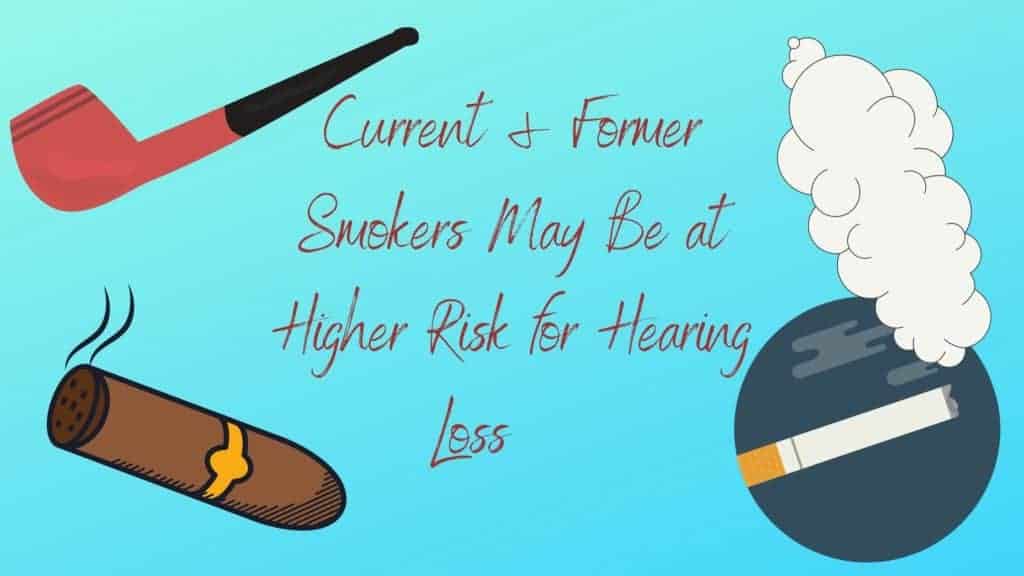
- Common Misconceptions That Delay Hearing Loss Diagnosis - June 6, 2025
- Signs Your Earwax Buildup Needs Professional Attention - May 29, 2025
- Preparing for a Hearing Test and What You Should Bring - May 16, 2025
Compared to nonsmokers, current and former smokers could be more likely to develop hearing loss according to recent studies. Hearing loss is one of the most chronic medical conditions that people experience today. Impaired hearing results in the reduced capacity to absorb and process sound which causes a range of symptoms that often have far-reaching effects on various aspects of life. Hearing loss can be caused by various factors including existing medical conditions, environmental exposure to loud noise, genetic history, and aging. There are also risk factors that contribute to hearing loss including smoking.
Link Between Smoking and Hearing Loss
Numerous studies investigate the correlation between smoking and hearing loss. One of the largest studies was conducted by the National Center for Global Health and Medicine in Japan. Published in 2018 in Nicotine & Tobacco Research, researchers examined data of a group of employees. The study included:
- Study: 50, 195 people between the ages of 20 – 64 who were free of hearing loss at the onset of the study. This cohort included smokers, nonsmokers, and former smokers. Over an 8-year period, their hearing was comprehensively tested annually.
- Findings: During the study, 5,100 people developed hearing loss. Compared to the participants who did not smoke, smokers were:
- 60% more likely to develop high-frequency hearing loss
- 20% more likely to develop low-frequency hearing loss
- The higher the number of cigarettes smoked, the higher the risk of developing high-frequency hearing loss.
- Up to 10 cigarettes per day: 40% more likely
- More than 20 cigarettes per day: 70% more likely
These findings show that smoking is significantly associated with hearing loss. In discussing these findings with Reuters, lead author of the study Huanhuan Hu, stated: The more one smokes, the higher the risk of hearing loss. Quitting smoking virtually eliminates the excess risk of hearing loss, even among quitters with short duration of cessation”.
How Does Smoking Impact Hearing?
The main ingredients found in cigarettes include nicotine and carbon monoxide which can impact the body in various ways. In the 2018 study, current smokers were more likely to be overweight and have associated chronic health issues including high blood pressure and diabetes. These conditions are linked to hearing loss in different ways that include:
- Blood Flow: cigarette ingredients and also other health conditions can reduce oxygen levels throughout the body which restricts blood vessels. This impacts the blood vessels in the inner ear which help the hair cells (and fluid) translate soundwaves into electrical signals that are sent to the brain to be processed. Restricted blood flow can reduce this function, contributing to hearing loss.
- Neurotransmitters: are responsible for sending information between cells. Nicotine and carbon monoxide can disrupt neurotransmitters which can impact the electrical signals getting from the inner ear to the brain.
- Eustachian Tube: is a tube that connects the middle ear to the back of the throat and serves to equalize pressure in the ears. Ingredients in cigarettes can impact this tube and cause pressure to build up which has consequences for hearing.
Toxic chemicals also impact the immune system which is what sustains the body.
Tips to Protect Hearing Health
There are helpful ways you can reduce your risk of developing hearing loss which is particularly important for people who smoke. This includes:
- Stop or Reduce Smoking: quitting smoking can be challenging but the health benefits are innumerable. If quitting is absolutely not possible, then it is important to reduce the amount. As the study highlighted, the greater the number of cigarettes smoked, the likelier hearing loss is.
- Have Hearing Tested: having your hearing tested regularly is a great way to be proactive about hearing health and intervene early if any impairment develops. Hearing tests involve a noninvasive and painless process that measures hearing ability in both ears. This identifies any impairment and the degree which reveals what your hearing needs are.
- Wear Protective Gear: reducing exposure to loud noise is another useful way to reduce the risk of developing hearing loss. You can do this by wearing earmuffs, headphones, earplugs, etc.
If you are concerned about your hearing abilities, we’re here to help! We provide comprehensive hearing health services. Contact us today to schedule a consultation.
